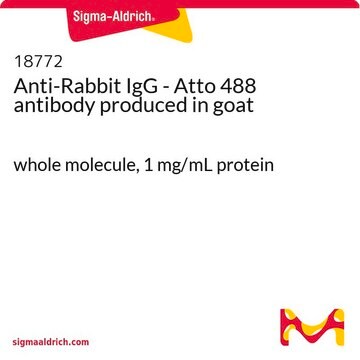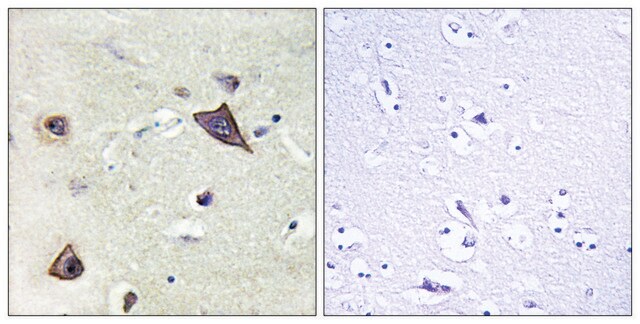Wichtige Dokumente
SAB4600075
Anti-Mouse IgG (H+L), highly cross-adsorbed, CF™ 568 antibody produced in donkey
~2 mg/mL, affinity isolated antibody
About This Item
Empfohlene Produkte
Biologische Quelle
donkey
Qualitätsniveau
Konjugat
CF™ 568 conjugate
Antikörperform
affinity isolated antibody
Antikörper-Produkttyp
secondary antibodies
Klon
polyclonal
Form
buffered aqueous solution
Speziesreaktivität
mouse
Konzentration
~2 mg/mL
Methode(n)
flow cytometry: 1-10 μg/mL
immunocytochemistry: suitable
immunohistochemistry: suitable
indirect immunofluorescence: 1-10 μg/mL
Fluoreszenz
λex 562 nm; λem 583 nm
Versandbedingung
dry ice
Lagertemp.
−20°C
Posttranslationale Modifikation Target
unmodified
Allgemeine Beschreibung
Spezifität
Immunogen
Leistungsmerkmale und Vorteile
Physikalische Form
Angaben zur Herstellung
Rechtliche Hinweise
Haftungsausschluss
Sie haben nicht das passende Produkt gefunden?
Probieren Sie unser Produkt-Auswahlhilfe. aus.
Lagerklassenschlüssel
10 - Combustible liquids
WGK
WGK 2
Flammpunkt (°F)
Not applicable
Flammpunkt (°C)
Not applicable
Analysenzertifikate (COA)
Suchen Sie nach Analysenzertifikate (COA), indem Sie die Lot-/Chargennummer des Produkts eingeben. Lot- und Chargennummern sind auf dem Produktetikett hinter den Wörtern ‘Lot’ oder ‘Batch’ (Lot oder Charge) zu finden.
Besitzen Sie dieses Produkt bereits?
In der Dokumentenbibliothek finden Sie die Dokumentation zu den Produkten, die Sie kürzlich erworben haben.
Unser Team von Wissenschaftlern verfügt über Erfahrung in allen Forschungsbereichen einschließlich Life Science, Materialwissenschaften, chemischer Synthese, Chromatographie, Analytik und vielen mehr..
Setzen Sie sich mit dem technischen Dienst in Verbindung.







